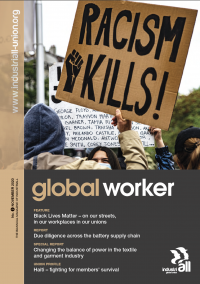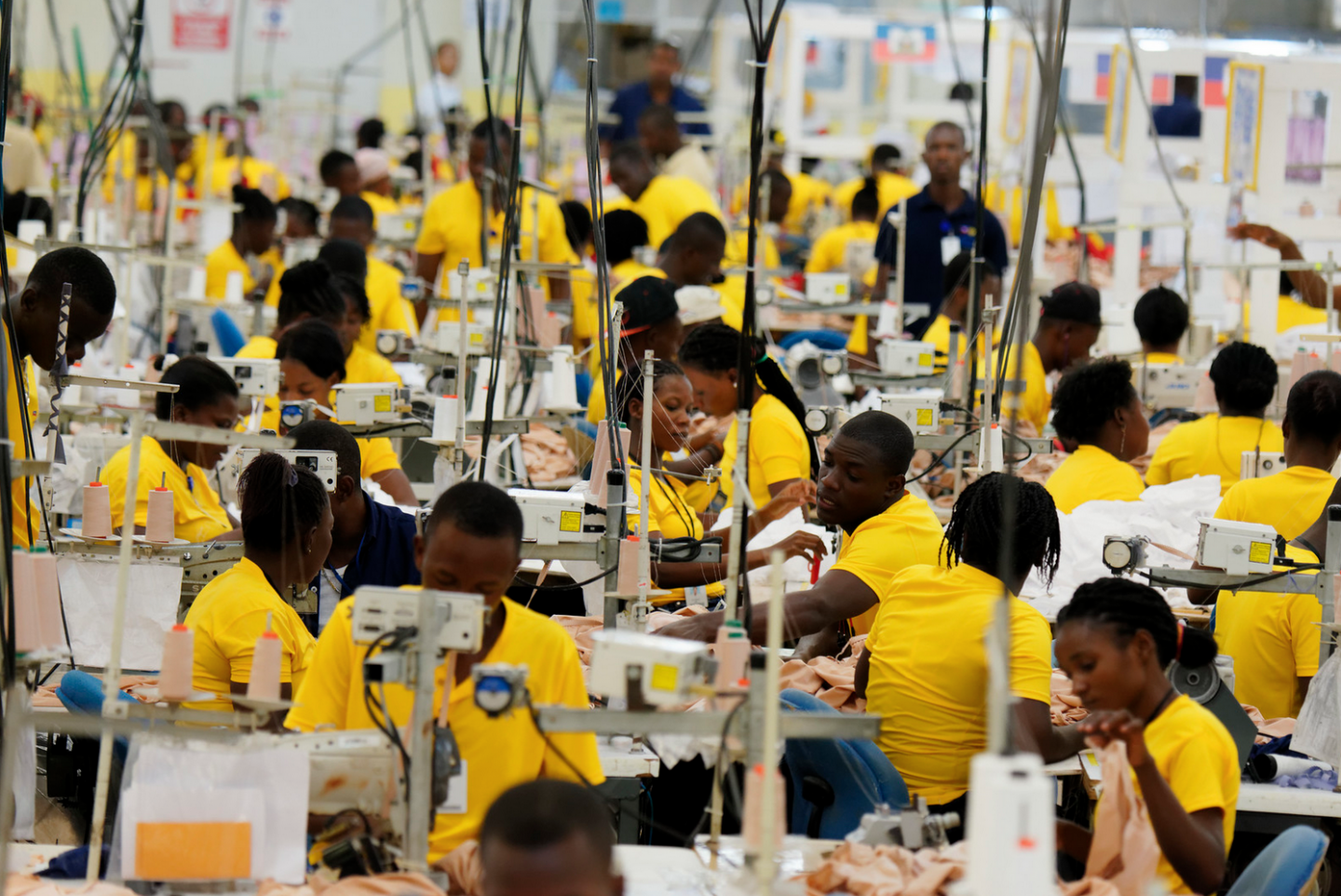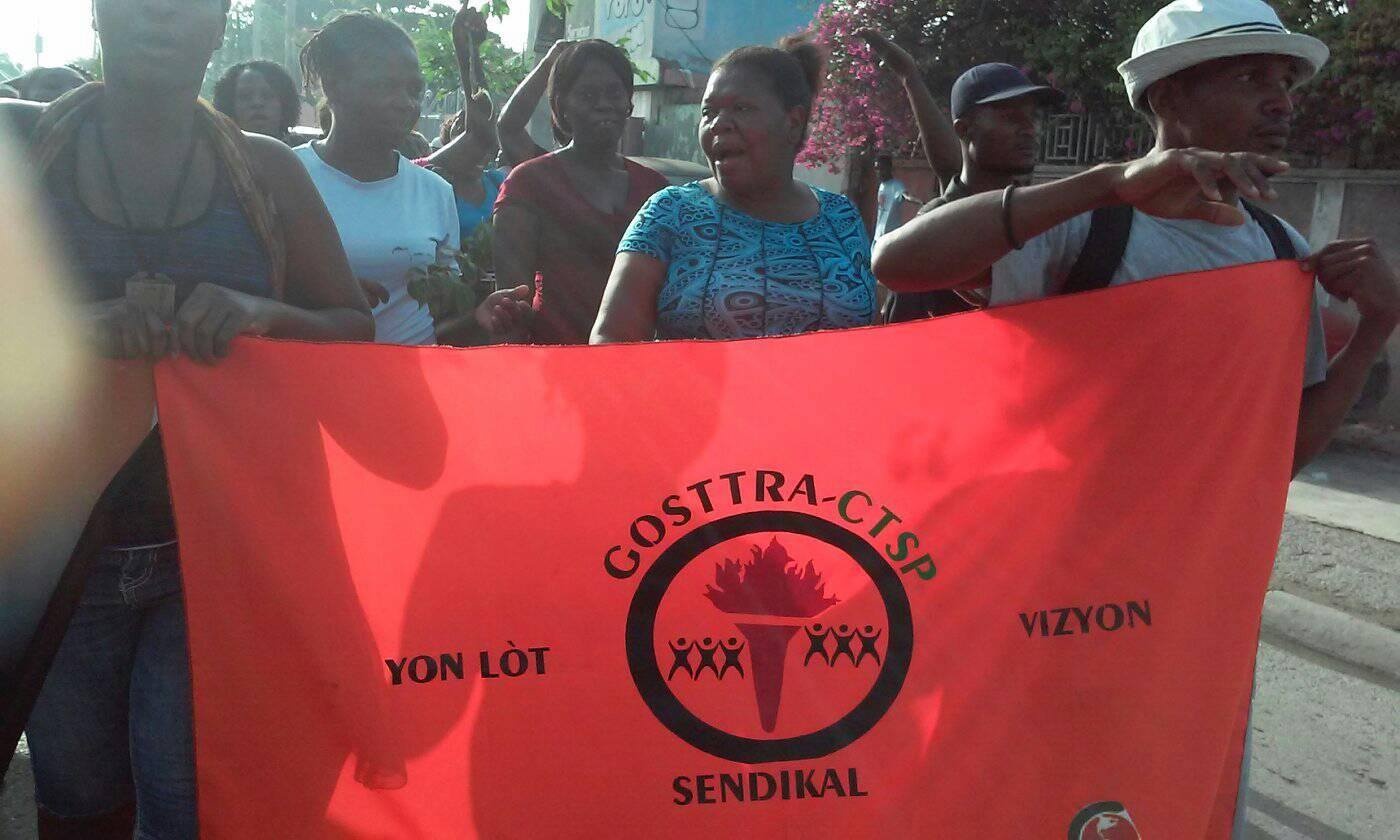22 January, 2021IndustriALL’s Haitian affiliate, the Groupement des Travailleurs (euses) du Textile pour la Réexportation d'Assemblage (GOSTTRA) was formed in 2012 with an ambitious agenda to organize garment workers and build union power.
PROFILE From Global Worker No. 2 November 2020 | |
 | Text: Laura Carter Country: Haiti Union: Groupement des Travailleurs (euses) du Textile pour la Réexportation d'Assemblage (GOSTTRA) |
The young union has nearly doubled its membership in the past eight years and now represents 2,300 workers in eleven factories, but the hostility of employers and the government’s failure to protect workers’ rights pose a real challenge to membership growth at a time when Haitian garment workers desperately need strong unions.
Haiti’s garment workers face an uncertain future. Roughly a third of the country’s 57,000 garment workers are currently suspended or terminated and have yet to receive any compensation from the government in spite of earlier promises. In spite of objections from GOSTTRA and other unions, the rest are working reduced hours in unsafe factories that lack even the most basic precautions to help prevent the spread of the coronavirus.
Decades of economic policies aimed at attracting foreign investment, including wage suppression, duty-free production and 15-year tax holidays for companies located in free trade zones have left workers on the knife-edge of poverty and have deprived the government of the tax revenue needed to build proper health care and social safety nets.
Says GOSTTRA general secretary Reginald Lafontant:
“Workers were stretched to the limit even before the pandemic, so they have no savings to fall back on – in fact, most of them were already in debt before the crisis hit.”
A survey conducted last year by US Solidarity Center showed that the minimum wage for a 48-hour week covered less than a quarter of the amount workers need in order to adequately provide for themselves and their families.
Haitian garment workers wrestle with the predicament of starvation wages on a daily basis, and the situation has worsened as food prices have skyrocketed.
Much to GOSTTRA’s frustration, the government seems shockingly out of touch with the extreme hardships workers face. At a recent meeting with trade unionists, President Jovenel Moïse flatly ignored demands for an increase in the minimum wage. “You know”, he said, “I get pressures from all sides. Employers are asking me to lower wages.”
Lafontant wrote out a list of the daily expenses incurred by garment workers and handed it to President. It showed how a worker’s entire daily minimum wage of 500 gourdes is spent before he or she even gets home.
“A worker typically leaves home at 5am and doesn’t get home till 7pm. Transport to and from the factory costs about 150 gourdes. A meal outside the factory gate costs 75 gourdes; a modest lunch will take up a further 155 gourdes; a couple of soft drinks during the course of the day will cost 120 gourdes, and that’s it, there’s nothing left of the minimum wage. So how are we supposed to survive?”
Not satisfied with paying rock-bottom wages, employers routinely cheat their workers. Two workers died during the summer after being denied hospital treatment because their employer had not remitted the social security contributions deduced from their wages. This sparked weeks of protests at the factory.
Employers are clamping down against GOSTTRA union leaders who are trying to defend their members’ interests.Hundreds of union leaders and members have been dismissed or terminated following protests over unfair treatment. A peaceful October 7 demonstration organized by GOSTTRA in the SONAPI free trade zone was repressed by police.

Haiti’s garment industry




